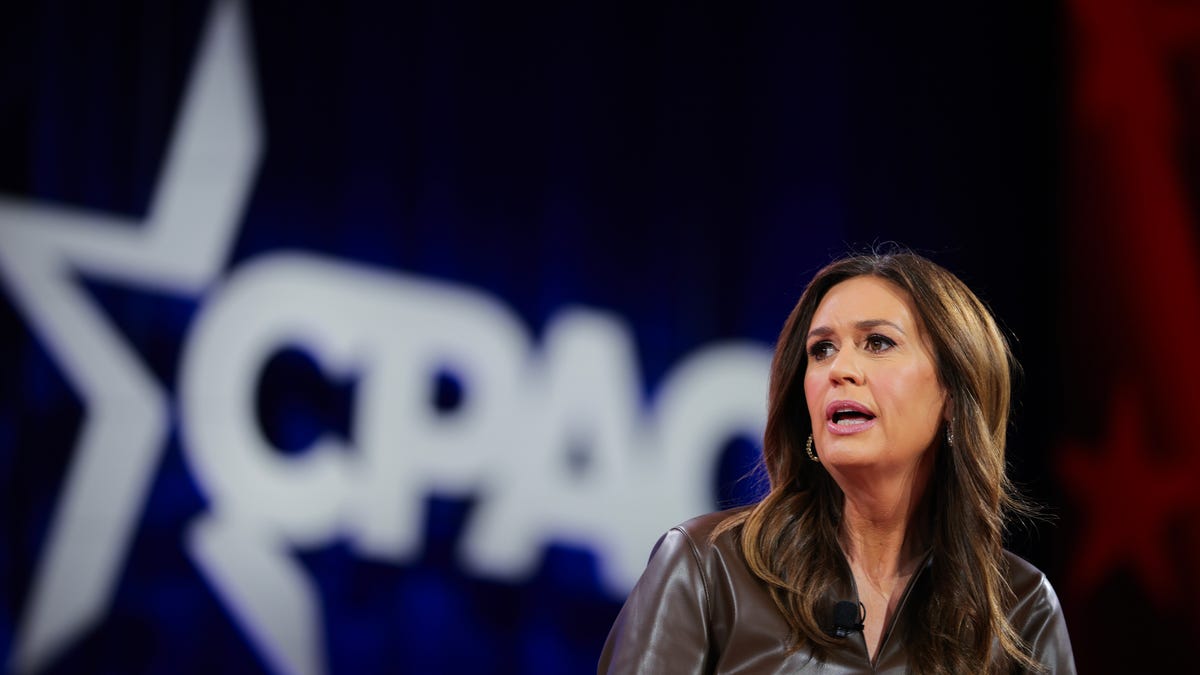Sanders signed the law hours before Louisiana executed its first inmate with the nitrogen gas method on Tuesday. Arkansas is now the fifth state to approve the method.
Death penalty: Which states still use capital punishment
The death penalty has been used in the U.S. since 1608. But various Supreme Court rulings have limited its use. Here’s why it’s controversial.
Just the FAQs, USA TODAY
Arkansas became the fifth state to authorize nitrogen hypoxia as a method of execution Tuesday, after Republican Gov. Sarah Huckabee Sanders signed legislation codifying the controversial method into law.
The adoption of the method came just hours before Louisiana ended a 15-year pause on capital punishment with the nitrogen gas execution of Jessie Hoffman, marking the first time the method has been used outside of Alabama and only the fifth time in the U.S. since last January.
Advocates for the bill argued that the method was needed to bring justice to the families of victims.
“As a state we have failed to keep our promises to the friends and family of victims to execute those sentenced to death under our laws,” Attorney General Tim Griffin said in a statement published by the Associated Press. “That ends now. Act 302 gives the state the tools needed to carry out these sentences and deliver justice.”
The Rev. Jeff Hood, an anti-death penalty advocate who witnessed the first nitrogen gas execution in U.S. history and campaigned against his home state adopting it, condemned the governor’s choice in a statement to USA TODAY.
In testimony to the Arkansas House Judiciary Committee in February Hood called the execution of Kenneth Eugene Smith last year “by far the most horrific thing I have ever seen,” according to the Arkansas Advocate.
“Governor Sanders has absolutely, positively no idea the moral hell she has just unleashed,” Hood said in the statement.
Nitrogen executions faced legal challenges
The nitrogen hypoxia method of execution is carried out by depriving the condemned of oxygen as the inmate inhales nitrogen through a mask and asphyxiates.
Apart from the two states that have used the method, it is also legal in Mississippi and Oklahoma. The legislatures of Ohio and Nebraska have reintroduced similar legislation this year.
Opponents of the method have said that it is an exceedingly cruel method of execution.
Last week, Chief District Judge Shelly Dick temporarily blocked Hoffman’s execution in Louisiana, saying that it could cause him “pain and terror” and that he showed a “substantial likelihood” of proving that nitrogen gas executions violate the Eighth Amendment’s prohibition against cruel and unusual punishment.
Dick cited accounts from all four of the Alabama executions that “describe suffering, including conscious terror for several minutes, shaking, gasping, and other evidence of distress.”
The witnesses observed the inmates’ bodies “writhing” under their restraints, “vigorous convulsing and shaking for four minutes,” heaving, spitting, and a “conscious struggling for life.”
Alabama Attorney General Steve Marshall has defended the method as “constitutional and effective,” and Louisiana Attorney General Liz Murrill has argued in court records that witness accounts from members of the news media are unreliable.
The stay was overturned by the 5th U.S. Circuit Court of Appeals and the Supreme Court declined to hear the case in a in a 5-4 decision.
Why are states turning to nitrogen hypoxia?
States have turned to using nitrogen gas as access to the drugs needed for lethal injections has been limited in recent years.
In 2010, Hospira, the company that produced Pentothal − a sedative used in the three-drug lethal injection method—− stopped producing the drug as it could not acquire components of it in the United States. The company attempted to restart production in Italy in 2011 but could not guarantee the country that the drug would not be used in executions.
The inaccessibility of Pentothal was compounded by other drug manufacturers refusing to provide drugs for executions.
“The legitimacy of capital punishment has been tied up with the promise that it’s safe and humane,” Ausitn Sarat, a political science and law professor at Amherst College, told USA TODAY in 2023.
In 2016 pharmaceutical giant Pfizer restricted the distribution of seven of its products to prevent them from being used for lethal injections and in 2017 Baxter International stated that it would not allow its products to be used in executions. The company told The Intercept in 2024 that the statement applied to both its drugs and medical equipment.
“Once manufacturers and companies find out that their product is being used to kill people, rather than to heal people, they’re concerned, and they don’t want their brand identified with that process,” Dale Baich, a former federal defense attorney who has represented death row prisoners, told the Intercept.
President Donald Trump issued an executive order in January directing U.S. Attorney General Pam Bondi to help states secure the lethal drugs.
The state of the death penalty in Arkansas
Arkansas has not seen an execution since 2017, when then-Gov. Asa Hutchinson ordered eight executions to be carried out in four sets of double executions over an 11-day period in April, according to the Death Penalty Information Center.
The state carried out four of those scheduled executions, two of them botched, according to the center, as supplies of the drugs used in lethal injections was set to expire, CNN reported at the time.
The Arkansas Department of Corrections currently lists 25 inmates on its death row.
